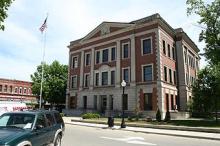Charter Prices Inspire Washington City to Consider its Own Network
Ellensburg, located in central Washington, is considering the pros and cons of a municipal fiber network. A big pro for the community of 18,000 is the ability to predict costs rather than depend on Charter Communications. Charter wants to begin charging $10,300 per month for municipal connectivity it previously supplied at no cost in return for access to the public rights-of-way.
The Ellensburg Daily Record recently reported that the City Council unanimously passed the first reading of an ordinance that will allow the city to establish a telecommunications utility. The city began using Charter's fiber optic network in 1997 as part of the city's franchise agreement. Educational institutions, public safety, and the county public utilities district also use the network. Ellensburg owns and operates its own electric and natural gas utilities. Energy Services Director Larry Dunbar was quoted:
“It’s clearly in the city’s best interest to just build it on its own and own it, compared to leasing it,” he said.
The community needs approximately 15 miles of fiber optic network to replace Charter's institutional network. The two parties are still negotiating and may still reach an agreement for a new contract although the article reports:
In June, Council directed the city to solicit vendor proposals for building a city network, and Dunbar said the city is close to granting the contract.
He declined to share a total cost because contract negotiations are ongoing, but said it makes more sense for the city to build the network now rather than pay in perpetuity, he said.
“A telecommunications network is like a 35-year endeavor,” he said. “If we would have done a lease, we could have bought two or three networks over 35 years.”
Local median KIMA TV recently covered the story:



